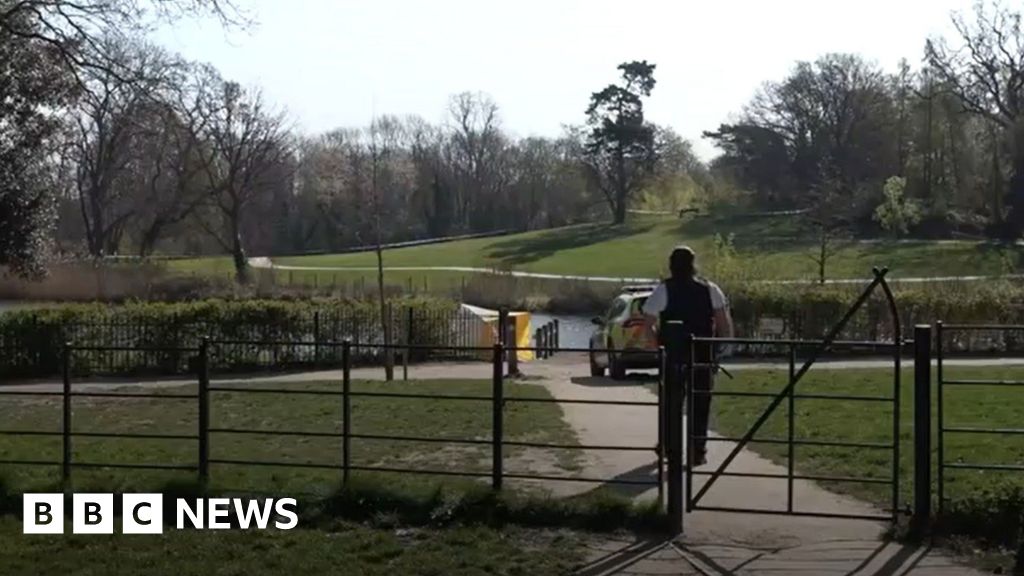The report begins by depicting the atmosphere where chants of “Pumpaj” and whistles can be heard in the streets. German ARD writes that “Pumpaj” is a well-known battle cry of student protests. On March 15, during the largest protest in Serbia with over 300,000 participants, the independent television station N1 did something unusual for Serbian conditions — it broadcast live for a full nine hours.
“Today marks the 111th day since students of the Faculty of Dramatic Arts occupied their faculty in Belgrade. Almost all students from every university centre in Serbia have joined them. They marched for kilometres across the country to participate in demonstrations in various cities.

And they are not alone. Serbian citizens have stood up and sided with them. Now they have arrived in Belgrade, and today we expect the largest protest in Serbian history,” reports ARD in its introduction to the N1 coverage of the protests.
N1 reports objectively, sometimes with slight sympathy for the students, but in line with journalistic standards, the report states. This is a rarity in Serbia, the report says. “According to data from the Independent Journalists’ Association of Serbia (NUNS) in Belgrade, only about three percent of all media critically report on the authoritarian government.
N1 and its partner station Nova S are independent from the Serbian state. Their parent company, United Group, is based in Luxembourg. Its founder and co-owner is Dragan Solak, a Serbian businessman residing abroad.
For Serbian President Aleksandar Vucic, Solak and his media are state enemies aiming to push the country into chaos. Vucic is waging a full-scale media war against them, while publicly portraying them as the ones who declared war on him,” ARD reports. „Their idea is to start a revolution and kill me.
For the criminal tycoon Dragan Solak and his political servants, that’s the only way to seize power. Because they will never beat me in elections. The people never wanted them and never will,” ARD quotes Vucic’s remarks about N1 and Nova S.
The demonization of Dragan Solak bears resemblance to the campaigns led by Viktor Orbán against Hungarian-American billionaire George Soros, the report notes. For about 97 percent of Serbian media, Aleksandar Vucic is either untouchable or a hero, ARD writes. The pro-government private channel Informer TV reported on the large protest in Belgrade by broadcasting folklore content.
The channel aired a bizarre performance accompanied by Serbian folk music, the article states. The headline read: “Terrorist gang planning bloodshed in Belgrade today.” Footage showed the arrest of two male and one female student.
It was claimed that, along with three other students, they were planning to break into the RTS (Radio Television of Serbia) building to demand the formation of a transitional government. A plan that seems completely unrealistic — but for Informer TV, it became front-page news. In the studio sat two hosts and the editor of Informer, businessman Dragan Vucicevic.
He raised his hands, clapped, and celebrated the arrests, ARD reports. “God, how beautiful this Serbian music sounds during the arrest of these terrorists, these Ustasa terrorists. Arrest them all, one by one.
And we’ve only just begun,” said Vucicevic while watching the broadcast, according to the report. The Ustasa were, as noted, Croatian fascists who killed many Serbs, Jews, and Roma during World War II. Within Serbia’s ruling SNS party, it is common practice to smear political opponents by calling them Ustasa, the report says.
Such aggressive attacks, wrapped in casual television shows — this is a new form of propaganda that nonetheless borrows heavily from the old, says Zeljko Bodrozic, president of the Independent Journalists’ Association of Serbia (NUNS). “This propaganda is a mutant — part Yugoslav communist propaganda, part Slobodan Milosevic’s SPS propaganda, and part Soviet KGB tactics. It’s about brainwashing and demonizing opponents.
Then, new media and technologies are used to present it more skillfully. And it works — Vucic has managed to stay in power for 13 years, despite rampant corruption and a level of state criminalization never seen before,” Bodrozic told the German broadcaster. At the end of March, outside the newsroom of the tabloid and TV channel Informer in Belgrade, nearly 10,000 students and other demonstrators gathered behind a fence to protest, the broadcaster states.
One of the banners read “Dezinformer.” Aleksa, from the Faculty of Political Sciences at the University of Belgrade, whose students organized the protest, only gave his first name for safety reasons. According to the broadcaster, Aleksa says the students have declared symbolic war on Informer.
“We declared a media war on Informer because they don’t investigate or follow journalistic standards. Informer is a machinery created to poison our society. When I go to their website, I see lies so disgusting it’s hard to believe,” Aleksa told the broadcaster.
Aleksa further explains to ARD the specific trigger for the protest actions: “They spread horrific lies about the mother of one of our fellow students. That was the last straw. We had to react,” he said.
A Serbian student of Muslim faith criticized the fact that a large part of the political elite in Serbia denies the genocide of Bosniaks in Srebrenica, the report continues. Informer responded with a smear campaign against the student, labelling him a foreign-paid traitor. The tabloid also published personal information about his mother’s health condition, ARD reports.
In addition to Informer, the most aggressive pro-Vucic media include two nationwide TV channels, Pink and Happy, as well as tabloids such as Alo, Kurir, Vecernje novosti, and Srpski telegraf. According to Zeljko Bodrozic, president of the Independent Journalists’ Association of Serbia (NUNS), the Serbian media landscape largely functions as a power apparatus tailored to Vucic’s needs. “Vucic found fertile ground.
After Milosevic fell in 2000, we never fully reformed the media system. Vucic and his party simply built their own media empire — starting with hundreds of local-level portals to around ten national TV channels distributed via the state provider Telekom. These channels are the primary news source for about 85% of the population.
Informer represents a new level of ruthlessness and brutality toward regime critics. And it’s clear that instructions come directly from the president’s office and the SNS party headquarters. There is coordination behind every spin and every attack,” Bodrozic told N1.
Such a thoroughly orchestrated media manipulation is hard to find in any other European country, ARD writes. According to Bodrozic, this also ties into Vucic’s biography. Before becoming a politician, Serbia’s president himself was a war correspondent — during the 1990s conflict in Bosnia, for propaganda outlets operated by Bosnian Serbs.
“In 1993, Vucic joined the Serbian Radical Party led by Vojislav Seselj. Vucic’s mentor, Seselj, was considered the political leader of the Chetnik movement and spent 12 years in prison for war crimes. In 1998, during the Kosovo war, Vucic became the Minister of Information under Slobodan Milosevic.
Among other things, he gained notoriety for censoring media critical of the regime and imposing draconian fines. During this time, independent journalist Slavko Curuvija was murdered in front of his home in Belgrade. There are strong suspicions that the Serbian security services were behind the killing,” ARD reports.
“Vucic’s political development took place in an ultra-nationalist world where it was considered legitimate to lie and deceive for a higher cause — the defence of Serbia and Serbdom. The Serbian Radical Party was always against media freedom and in favour of authoritarian control. They manipulated media and built their own,” Bodrozic told the German broadcaster.
After the fall of Milosevic’s regime in 2000, Serbia initially underwent a phase of democratization — until 2003, when then-Prime Minister Zoran Djindjic was assassinated by a sniper. Aleksandar Vucic, a man from the old Milosevic era has now been in power again for 13 years, the report states. Some experts argue that Vucic has captured the Serbian state.
He has built a power apparatus entirely moulded to suit his needs. During the student protests, many participants are calling for a new media system in Serbia. That’s also the case with Teodora, a German language student at the University of Belgrade, who is taking part in the blockade of over 60 out of 80 faculties across Serbia.
Speaking from her occupied Faculty of Philology, she expresses frustration with the public broadcaster RTS. While RTS does not incite hatred toward protesting students like Informer, Pink, or Happy do, it still remains under government control. Teodora believes RTS largely ignores the protests and hardly engages with students at all, ARD reports.
“In the first three months, we only received one interview request as students, and I think that’s terrible. People simply couldn’t see us,” she told the German broadcaster. On March 15, during the massive protest that brought over 300,000 people to Belgrade, global media reported extensively.
But Serbia’s public broadcaster initially remained silent for hours and later only briefly mentioned the protest in its news segment, the report states. “At 4 p.m.
, when the city was full of people, they aired a concert, then a TV series or something like that. That shows that the protests are not important to them — or that they don’t want to show how many people came to Belgrade,” she said. Another protest in front of a media outlet — this time in front of the independent television station N1.
Around a hundred demonstrators, nearly all men, gathered and shouted “Serbia, Serbia” and “Traitors!” They were separated by a police cordon from hundreds of counter-demonstrators, ARD reports. “Among those protesting against N1 were officials from the Socialist Movement, the pro-Russian party of Deputy Prime Minister Aleksandar Vulin. He is currently stepping down from his post, as the entire government cabinet has resigned during the protests.
Critics say Vucic is merely reshuffling his chess pieces,” the report adds. The Socialist Movement is a coalition partner of Vucic’s ruling SNS party. So this is far from a citizens’ protest, says N1 program director Igor Bozic in his interview with ARD.
“We’ve been warning for a long time that we’re under pressure from the authorities. But since the big protest in Belgrade, we’ve noticed a radicalization. For the first time, a party from the ruling coalition openly protested against free media.
They brought their officials in buses and blocked our entrance. They wanted to divert attention from protests against pro-regime media. They simply reverse everything — by doing something similar to us,” said Bozic.
On TV channels loyal to Vucic, a campaign is being waged against N1 and Nova S, orchestrated by the Center for Social Stability — an organization likely supported by the Serbian government, ARD reports. One of the video clips shows excerpts from N1 and Nova S programs and represents a direct attack on the two broadcasters. “New lies are made up every day: ‘Vucic attacks, Vucic hires thugs, Vucic protects criminals.
He is a disgrace for Europe.’ Every one of their lies is short-lived, but they have sown hatred. So wake up! Soon – peacefully, democratically, united in Belgrade,” the video states.
This is a call from President Vucic for a counter rally against the student protests. However, the event has been postponed. Still, the government continues to use harsh rhetoric against N1 and its partner station Nova S.
Vucic describes critical media creators as parts of a network targeting him and Serbia, the report says. “Maybe they can kill me. They want to win in Serbia and stage a revolution here through lies and deception.
They want to abolish Serbia as a state. But they’ll never succeed,” Vucic declared, The German public broadcaster added. The attacks are also echoed by Vucic’s party colleague and speaker of parliament, Ana Brnabic.
When United Group, the parent company of N1 based in Luxembourg, had to sell its Serbian cable operator SBB, Brnabic was openly pleased. She believed this would push N1 out of the Serbian market, ARD reports. “Mordor has fallen,” Brnabic said, comparing United Group to the evil empire from The Lord of the Rings, according to the German media outlet.
But United Group remains firmly in Serbia, the report continues. It has an agreement with the new owner of its former cable operator ensuring that N1 and Nova S channels remain part of the cable package. However, the Serbian government has already taken steps to limit the expansion of the SBB network in many cities.
As a result, N1 can be viewed in only about 40% of the country’s cable network. The state also strongly supports Telekom in order to make N1’s market position more difficult, the report states. The government’s campaigns are having an impact.
Journalists from N1 feel it on the streets, says N1 director Igor Bozic. “In the past four months, we’ve reported three serious incidents. During a counter-protest against the student demonstrations, one of our female colleagues was assaulted by a masked attacker.
Another reporter was followed and insulted for over an hour during a live broadcast. And a third reporter received a death threat on the sidelines of a Vucic rally,” Bozic said. The attacks are visible online.
One N1 reporter was told to “get lost” and was subjected to obscene sexual slurs, the report adds. On Informer TV, President Vucic is once again portrayed as a hero. The headline reads: “Vucic doing everything to save students’ academic year.
” The footage actually shows Vucic giving a speech surrounded by students waving flags, ARD reports. The students look at him with reverence. Is he reconciling with them, the outlet wonders? “We’re trying to help however we can.
At least by adopting a lex specialis so we can extend the academic year. We’re doing this for you — because you just want to study. Those who caused anarchy will have to explain themselves.
Someone decent, rational, and who cares about the youth would never do such a thing to them,” Vucic said. “Students stand with the president — for education, against protests, and against anarchists” — this is the narrative pushed by pro-Vucic media. But upon closer inspection, ARD notes, Vucic is standing with only a dozen students.
These are very particular students, loyal to the government, who are often disparagingly referred to in Serbia as “chaci.” Vucic is with them in the so-called “Chaciland,” a protest camp set up in a park in front of the presidency — a counterweight to the large-scale student protests in Belgrade. Critical journalists quickly revealed that this camp was staged by the ruling SNS party and that some participants were party officials or fake students.
For Zeljko Bodrozic of NUNS, this is a textbook move by the government. “This is their modus operandi — to flip everything upside down. If there’s a protest, they create a copy of it, their own version.
The protest camp against the student movement is theatre — it’s a staged parallel reality,” Bodrozic says. What frustrates Bodrozic the most is that all this manipulation is unfolding before the eyes of the EU — yet the EU remains silent. “The EU is doing nothing to improve the situation.
It’s not really helping Serbian society get out of this media darkness. So, unfortunately, the EU is not our partner for change,” he emphasized. From the beginning of the protests, it’s been noticeable that students have not been carrying EU flags.
The disappointment, ARD writes, seems too great. Still, Bodrozic is convinced that Serbia’s only real democratic future lies in the EU — and only without authoritarian president Aleksandar Vucic. “Serbia has fundamentally changed in these past months.
There’s no going back. Now, Vucic can only maintain peace through open dictatorship. But he doesn’t have the capacity for that.
That’s why I believe this situation will be resolved — for him — by the fall,” Bodrozic said in the interview. In reality, Serbia currently lives in a state of ongoing protest. Yet, there are still no concrete signs that Vucic and his party, after 13 years in power, are on the verge of losing it — the report concludes.
.
Top

German public broadcaster: Protests in Serbia and Vucic’s propaganda war in the media

The report begins by depicting the atmosphere where chants of “Pumpaj” and whistles can be heard in the streets. German ARD writes that “Pumpaj” is a well-known battle cry of student protests. On March 15, during the largest protest in Serbia with over 300,000 participants, the independent television station N1 did something unusual for Serbian conditions — it broadcast live for a full nine hours.











